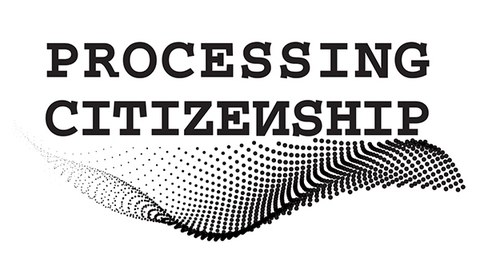11.04.2023
Paper Presentation by Michelle Pfeifer @ Joint STS-MIGTEC and Processing Citizenship Workshop | March 2023
Paper Presentation by Michelle Pfeifer @ Joint STS-MIGTEC and Processing Citizenship Workshop 2023 (hybrid) University of Bologna, Department of Philosophy and Communication Studies & Online 21–22 March 2023
Work at the intersection of citizenship studies, science and technology studies, and migration studies has shown how the (lack of) everyday access to and use of technologies shape the conditions for migrants on the move to make claims. Claims-making thereby refers to acts of demanding rights by and on behalf of migrants and points to contestations, negotiations, and struggles around (material) citizenship and (political) subjectivity (Isin 2019, Nyers 2015). Research has stressed the ambivalences of technologies for migrants, which may establish and support claims but also expose migrants to suspicion and mistrust (Ponzanesi & Leurs 2022). For instance, smartphones may collect and show evidence in the interests of migrants, but they may also be used for exposure in identification arrangements by state authorities (Gillespie, Osseiran & Cheesman 2018). Or social media platforms may render migrants’ claims (in)visible in the digital sphere (Georgiou 2019) while at the same time being accessed for monitoring and surveillance by state and other actors (Latonero & Kift, 2018).
With this panel, we want to explore further the ambivalences of technologies in regard to migrants’ claims-making. It asks how technologies support and restrict practices of claim making as acts of citizenship, or how they enable and constrain publics, in which migrants’ concerns come to matter.
Michelle Pfeifer will present the paper "Border Forensics: Documentation of Border Violence along the Balkan Route“ in which they look at how media technology like the smartphone function to mediate contestations and struggles over the freedom of movement, citizenship, policing, and belonging. They analyze the ambivalence of smartphones for people on the move. As is well documented, phones are a central infrastructure that affords mobility, orientation, and connection to people on the move (Gillespie et al. 2016, Kaufman 2018, Risam 2018, Hegde 2019) while they also become state tools of surveillance and data extraction. They investigate the simultaneous valorization of phone data for border and asylum granting authorities and the destruction and confiscation of phones by border police during illegal pushbacks along the Balkan route. To examine this ambivalence, they turn to activist documentation of border violence along the Balkan route to show how smartphones and their destruction becomes part of an evidentiary and forensic regime that is mobilized to make claims against state violence (Weizman 2017, M’charek 2018). These practices show that metaphors that frame border technologies as smart, less invasive, or even more humane such as the valorization of smartphone data are entangled with an intensification of border violence. Documenting border violence specifically works to counter the metaphors of smart borders that frame “smart” border policing as less invasive and more humane by showing how data extraction and border violence are entangled.
link: http://sts-migtec.org/news-events/workshops-and-conferences/

